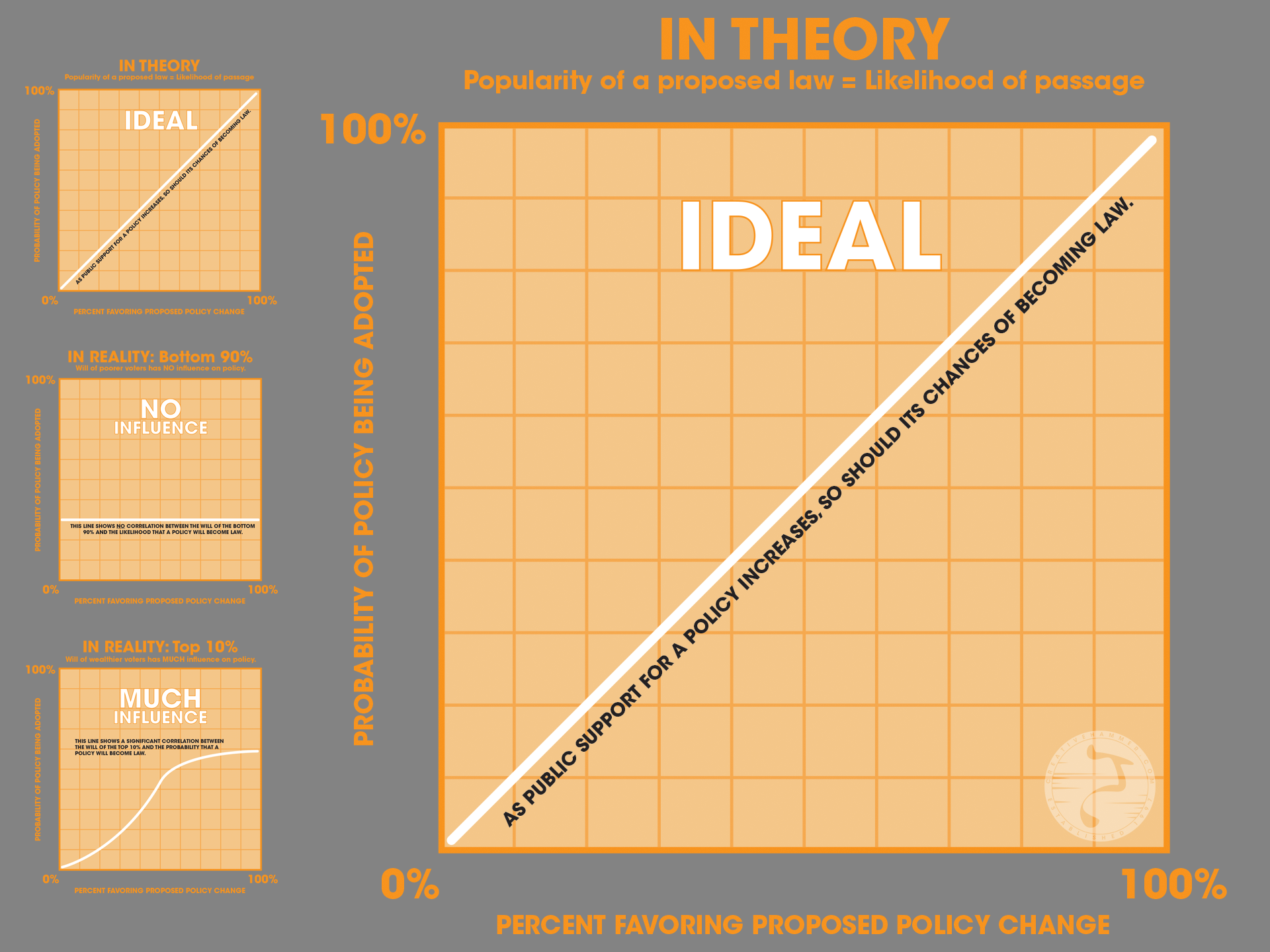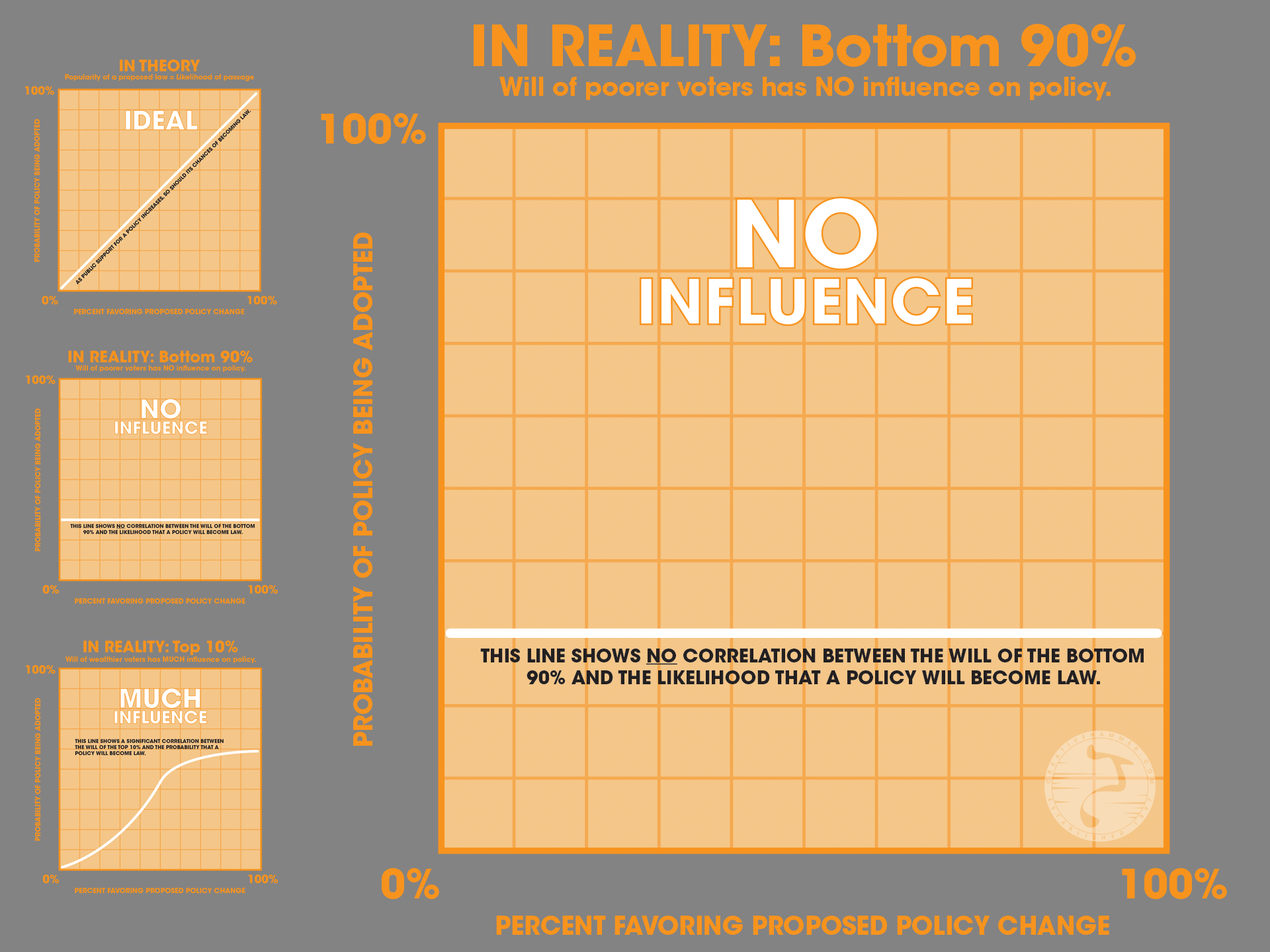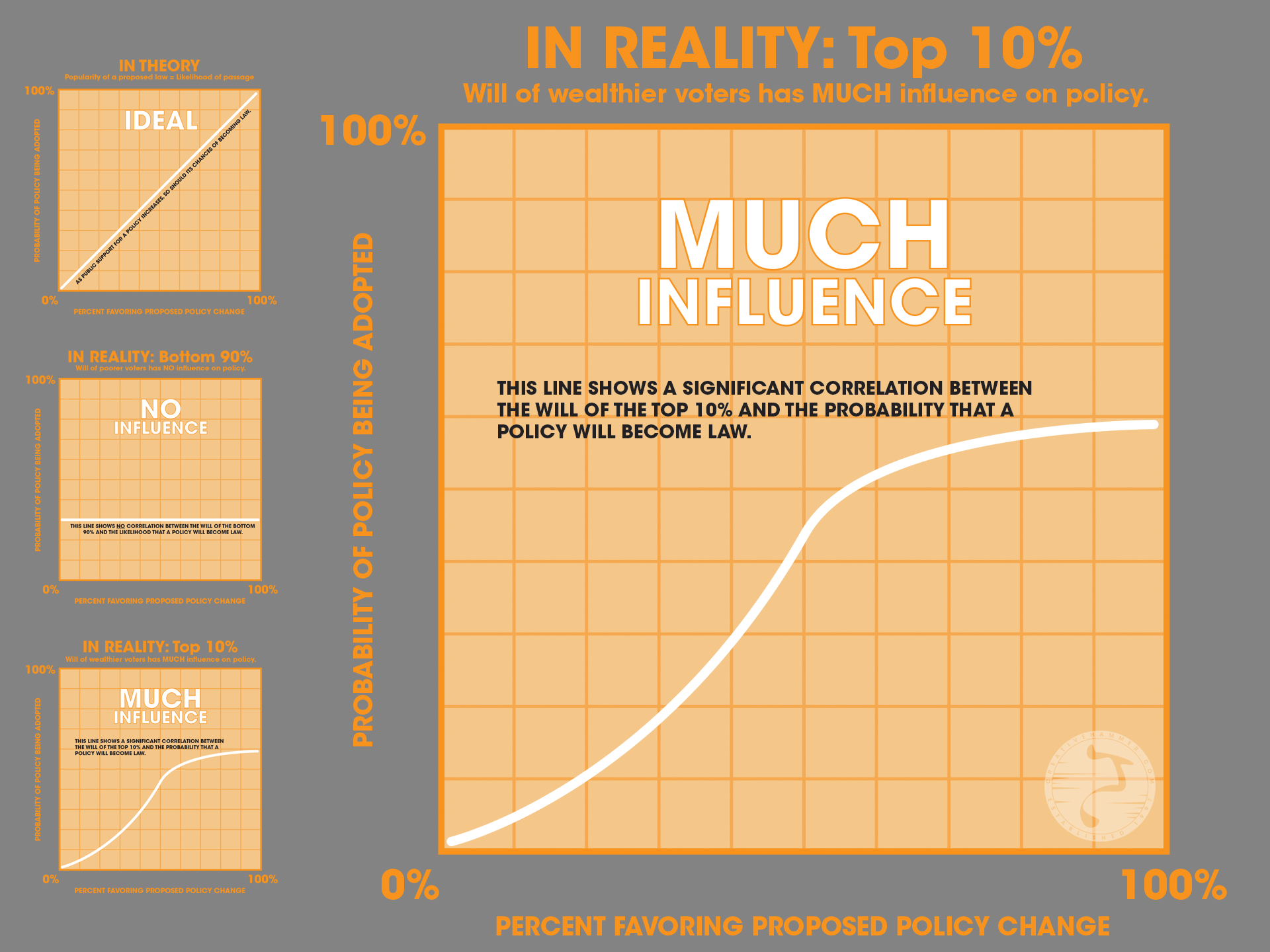Seeds of discontent

A Princeton University study published in 2014 knocks the notion of American representative democracy right on its star-spangled ass.
Researchers Martin Gilens and Benjamin Page looked at 1,779 policy-related public opinion surveys conducted between 1981 and 2002, then compared the results of those surveys with policies enacted during the same period. They wanted to find out whether our lawmakers make law in accordance with the will of the people.
In theory, a proposed policy that 100% of us hate would stand 0% chance of becoming law. Conversely, a policy that everybody loves would fly up to the signing ceremony on laughter-silvered wings.
But that’s not the way of the Washington world. Not for the bottom 90% of us, anyway, meaning those who make less than $114,000 a year. As Gilens and Page put it, “The preferences of the average American appear to have only a miniscule, near-zero, statistically non-significant impact upon public policy.”
In other words, if you make less than $114,000 per year, you are politically invisible.
If you’re a member of the ten percent, however, thy will is much likelier to be done. Congress rejects policies that you oppose, and policies that you support are more than twice as likely to become law as policies supported by your financial inferiors.
The mystery, then, isn’t why Gallup polls have been indicating for years that only about 10% of us give Congress a passing grade. We might guess which 10% that is. The mystery, to me at least, is why the other 90% of us are still sitting on our hands.


